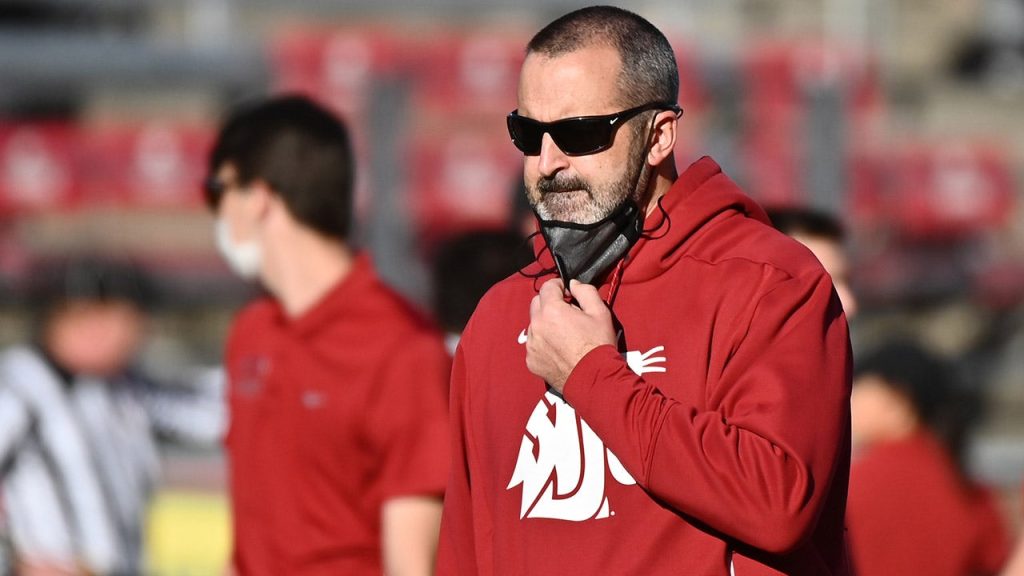The Dismissal of Nick Rolovich and the Legal Battle that Followed
In October 2021, Washington State University (WSU) dismissed head football coach Nick Rolovich and four assistant coaches for their refusal to comply with a state-mandated COVID-19 vaccination policy. This decision sparked a legal battle between Rolovich and the university, culminating in a lawsuit where Rolovich claimed wrongful termination based on religious discrimination and alleged vindictive behavior by the athletic director, Pat Chun.
Rolovich, a Catholic, argued he was entitled to a religious exemption from the mandate. However, U.S. District Judge Thomas Rice, an Obama appointee, rejected this claim, citing Rolovich’s documented secular concerns about the vaccine as evidence against a genuine religious objection. Judge Rice’s ruling underscored the absence of any religious justification for Rolovich’s refusal throughout the extensive discovery process. This absence, according to Judge Rice, was sufficient grounds to dismiss Rolovich’s claim of religious discrimination.
The university argued that accommodating Rolovich’s vaccine refusal would pose undue hardship, impacting team operations, recruitment, fundraising, and the university’s overall reputation. These potential consequences, according to WSU, justified Rolovich’s dismissal despite his objections. Judge Rice concurred with the university’s assessment, ruling that accommodating Rolovich would indeed constitute an undue hardship. This decision effectively upheld WSU’s right to enforce the vaccine mandate and terminate employees who refused to comply.
The Impact on Players and Allegations Against the Athletic Director
Rolovich’s dismissal elicited strong reactions from many of his players, who expressed support for their former coach and highlighted his positive influence on their lives. Jaylen Watson, a former WSU player now with the Kansas City Chiefs, issued a heartfelt statement defending Rolovich and criticizing the public backlash against him. Watson emphasized Rolovich’s genuine character and commitment to his players, contrasting it with the perceived emphasis on financial considerations in college sports.
Similarly, former WSU punter Nick Haberer credited Rolovich with transforming his life, offering him an opportunity when he was uncertain about his future. Haberer described Rolovich not just as a coach but as a mentor and friend who imparted valuable life lessons. These testimonials from former players portrayed Rolovich as a positive figure in their lives, suggesting a disconnect between the public perception of his actions and the personal impact he had on his team.
Adding another layer to the controversy, Rolovich accused athletic director Pat Chun of suggesting a highly publicized vaccination event where Rolovich would receive the vaccine in front of the entire football team. Rolovich rejected this proposal, characterizing it as a "circus" and asserting his unwillingness to participate in such a spectacle. This allegation further strained the relationship between Rolovich and the university administration, contributing to the overall contentious atmosphere surrounding his dismissal.
Judge Rice and Access to Abortion Medication
Beyond the Rolovich case, Judge Rice has been involved in other high-profile decisions, including one related to access to abortion medication. In April 2023, he ruled in favor of 17 Democrat-led states that had sued to protect access to mifepristone. While the states aimed to expand access, Judge Rice’s decision focused on maintaining the existing level of access and preventing any restrictions by the FDA in the plaintiff states. This ruling highlights Judge Rice’s involvement in complex legal issues beyond the realm of sports and employment law, showcasing his impact on broader societal debates.
The Aftermath and Conclusion
The dismissal of Nick Rolovich and the subsequent legal battle serve as a significant case study within the intersection of public health mandates, individual liberties, and the complexities of employment law. The court’s decision affirmed the university’s authority to implement and enforce a vaccine mandate, even in the face of religious objections, when accommodating those objections would create undue hardship. The case also underscored the delicate balance between individual rights and the collective well-being during a public health crisis.
The outpouring of support from Rolovich’s former players adds a human dimension to the legal and administrative aspects of the case. Their testimonials offer a glimpse into the personal impact of the coach beyond the headlines and legal arguments. While the legal battle concluded with Rolovich’s loss, the case continues to spark discussions about the scope of employer mandates, the role of religious exemptions, and the long-term implications for college athletics in the wake of the pandemic. The case also highlights the multifaceted role of a judge, whose decisions can have far-reaching consequences across various aspects of society. Judge Rice’s involvement in both the Rolovich case and the mifepristone ruling exemplifies this, demonstrating his influence on matters ranging from employment law in college sports to national debates over healthcare access.

